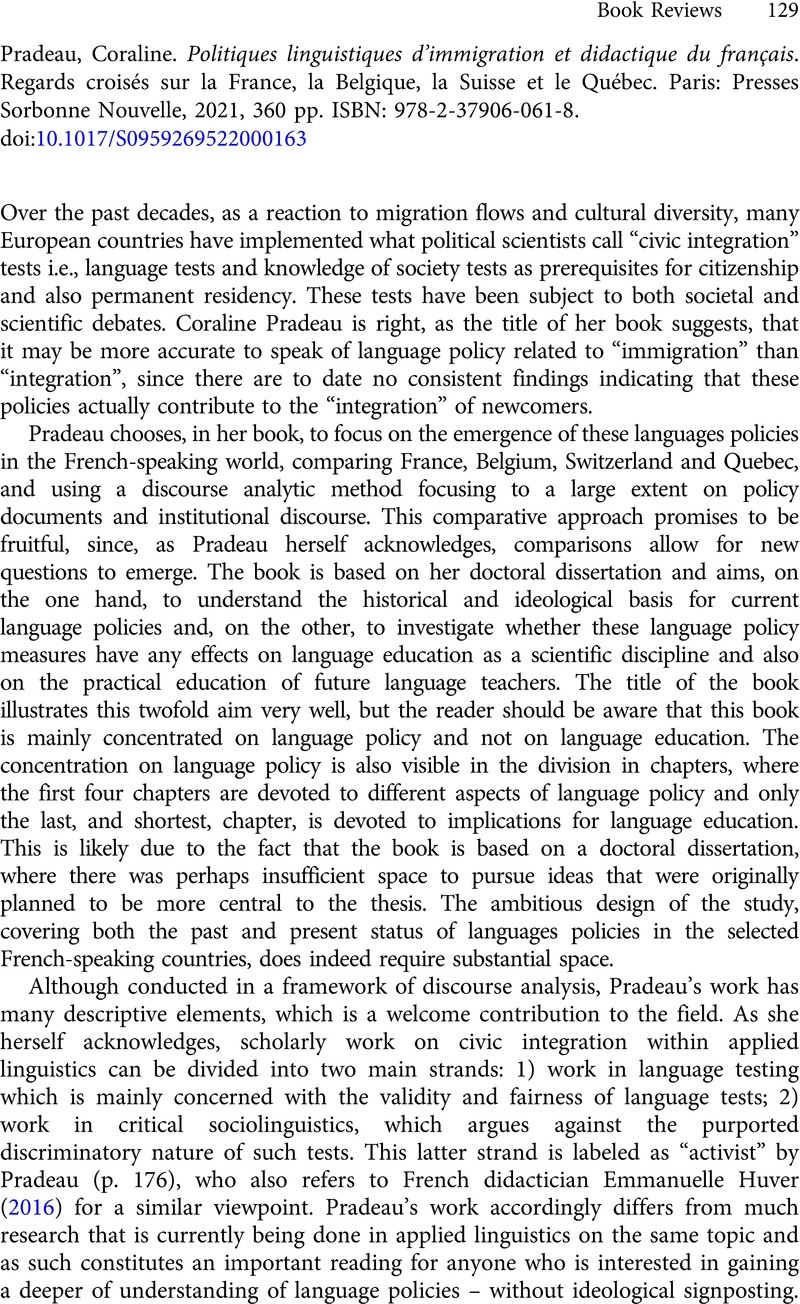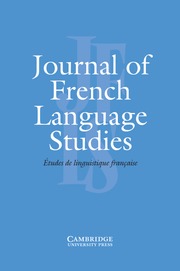No CrossRef data available.
Article contents
Coraline Pradeau. Politiques linguistiques d’immigration et didactique du français. Regards croisés sur la France, la Belgique, la Suisse et le Québec. Paris: Presses Sorbonne Nouvelle, 2021, 360 pp. ISBN: 978-2-37906-061-8.
Review products
Coraline Pradeau. Politiques linguistiques d’immigration et didactique du français. Regards croisés sur la France, la Belgique, la Suisse et le Québec. Paris: Presses Sorbonne Nouvelle, 2021, 360 pp. ISBN: 978-2-37906-061-8.
Published online by Cambridge University Press: 08 June 2022
Abstract
An abstract is not available for this content so a preview has been provided. Please use the Get access link above for information on how to access this content.

- Type
- Book Review
- Information
- Copyright
- © The Author(s), 2022. Published by Cambridge University Press
References
Chiswick, B. R. (1991), Speaking, reading and earnings among low-skilled migrants. Journal of labor economics, 9(2): 149–170.CrossRefGoogle Scholar
Dustmann, C. & Van Soest, A. (2002), Language and the earnings of immigrants. Industrial Labor Relations Review, 55(5): 473–492.CrossRefGoogle Scholar
Huver, E. (2016), L’évaluation linguistique des adultes migrants : contrôle, preuve, téchnisation. In Leconte, F. (ed.), Adultes migrants, langues et insertions sociales : dynamiques d’apprentissage et de formations. Paris: Riveneuve Éditions, pp. 191–224.Google Scholar
Lochmann, A., Rapoport, H. & Speciale, B. (2018), The effect of language training on immigrants’ economic integration: Empirical evidence from France. European Economic Review, 113: 265–296.CrossRefGoogle Scholar
Neureiter, M. (2019), Evaluating the effects of immigrant integration policies in Western Europe using a differences-in-difference approach. Journal of Ethnic and Migration Studies, 45(15): 2779–2800.CrossRefGoogle Scholar
Schnapper, D. (2009), Penser l’intégration. In Archibald, J & Galligani, S (eds.), Langue(s) et immigration(s): société, école, travail. Paris : L’Harmattan, pp.19–31.Google Scholar
Wallace Goodman, S. & Wright, M. (2015). Does mandatory integration matter? Effects of civic requirements on immigrant socio-economic and political outcomes. Journal of Ethnic and Migration Studies, 41(12): 1885–1908.CrossRefGoogle Scholar



